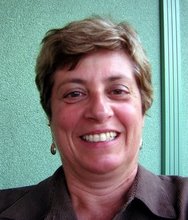This is not a far-fetched idea, judging from Rebecca Solnit's new book, A Paradise Built in Hell: The Extraordinary Communities that Arise in Disaster. In a ├ ??tour├ ? Ł of the some of the biggest disasters of the 100 years, she notes that people at the scene consistently react in a spirit of solidarity, generosity and altruism despite the prevailing belief among the authorities that disaster turns people into panicked and ruthless savages.
Solnit cites sociologist Charles E. Fritz, a former captain in the U.S. Army Air Corps stationed in Britain during World War II, to refute these social Darwinist beliefs.
├ ??Disasters provide a temporary liberation from the worries, inhibitions, and anxieties associated with the past and future,├ ? Ł said Fritz, ├ ??because they force people to concentrate their full attention on immediate moment-to-moment, day-to-day needs within the context of the present realities.├ ? Ł
For example, thousands of people escaped San Francisco after the 1906 earthquake and then set up a tent city in Golden Gate Park. On the third day after the quake, Anna Amelia Holshouser started a soup kitchen there with only a tin can and a pie plate. She subsequently raised money to buy supplies in neighboring Oakland and was soon feeding two to three hundred people a day. She did all this without fear, trauma or despondency and was one among many who pitched in to do whatever was possible in the wake of this devastating disruption to their lives.
Then the authorities moved in to take control because they feared people would loot and murder. They treated citizens with suspicion and shut down their assistance efforts, which they regarded as ├ ??renegade.├ ? Ł
It's important to recognize that this negative attitude toward the public is rooted in Gustave le Bon's 1894 book, The Crowd: A Study of the Popular Mind. His thesis is that when people gather in crowds, they become primitive beings who act on instinct, which is akin to madness. The job of the authorities is to rein them in.
Such thinking has typically led to unnecessary imprisonment and needless killing of people as a gesture of saving the city from ├ ??the unlicked mob├ ? Ł (as one military commander in the San Francisco quake referred to the public) rather than saving the people from the disaster that destroyed the city.
While Solnit admits that some savagery does happen, people for the most part are just trying to survive. That Black people were reported to be taking food, clothing, shoes from retail stores after Hurricane Katrina, revoltingly overlooks the fact that most of them were trying help their neighbors who had largely been abandoned by the authorities. Of course, it also suggests the disgusting tinge of racism that still exists in our country today.
(Note: You can view every article as one long page if you sign up as an Advocate Member, or higher).





